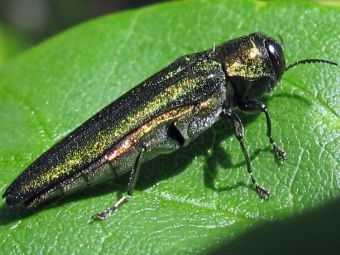Shop By Pest
North Texans Brace For Beetle Epidemic That Could Destroy Trees
FORT WORTH (CBSDFW.COM) – Cities around North Texas are planning for a beetle epidemic that experts say will destroy the population of ash trees.
Called the emerald ash borer, they are tiny beetles capable of killing thousands of trees in a single city. The emerald ash borer has already found its way to Fort Worth, and now other cities are preparing for the inevitable.
“As the eggs hatch and they become larvae, the insect, as it becomes mature, exits and creates a little D-shaped exit hole,” says Angie Kralik, Urban Forester for the City of Plano.
Within two years, the tree is dead. Kralik says within 15 years, all ash trees left untreated will be gone.
“Definitely distressing, because when I look at them right now and I see them healthy and fine, I know that I’m looking at something that is not going to be here a lot longer,” she says.
So she’s assessing the health of all ash trees on public property – around 1,400. Starting next week, compromised ones on city medians will begin coming down.
“It’s about $1,000 a tree, so we’re going to be incorporating that into our budgets,” she says.
A necessity for public safety, she says. Fort Worth, which had a confirmed case of emerald ash borer last month, is also conducting a survey of its ash trees and weighing the cost to remove them eventually or treat them. Denton is taking proactive measures as well. Kralik says there is a treatment option – but it would means a commitment of $100 per tree every other year for 15 to 20 years. She says homeowners should start with an evaluation by a certified arborist.
“If you have an ash tree on your property, and you love it and you want to keep it, by all means, get the injections for it and save it,” she says.
Kralik says they are already making plans to replant those trees with a different kind. They’ve stopped planting ash trees in the city altogether.
As for stopping emerald ash borer from spreading, the Texas Department of Agriculture is seeking an emergency quarantine to prohibit certain wood and wood products from being removed from Tarrant County. Firewood is one way it can spread.

